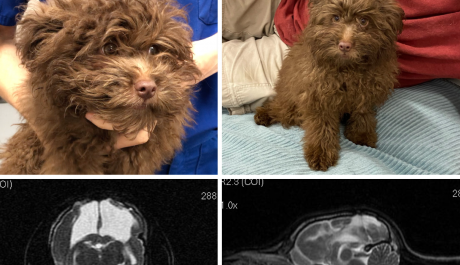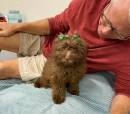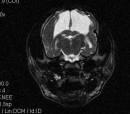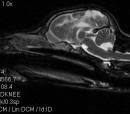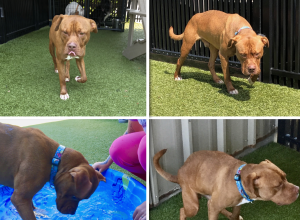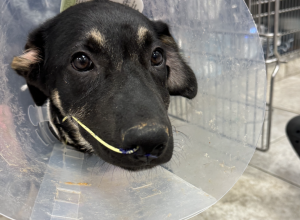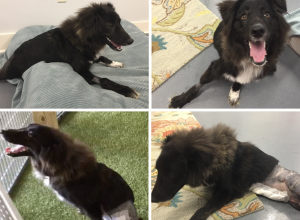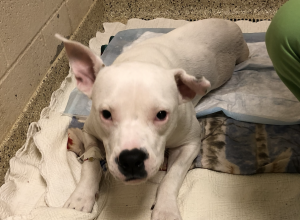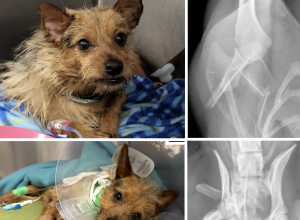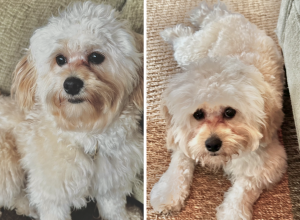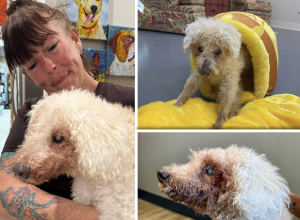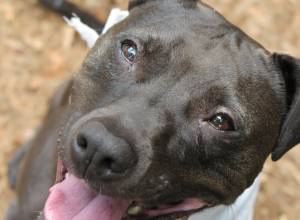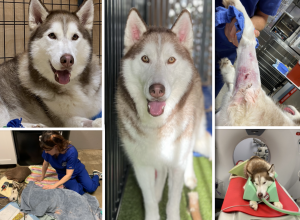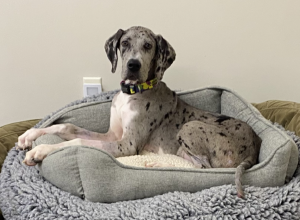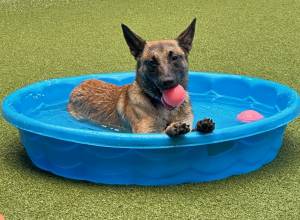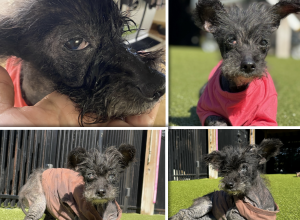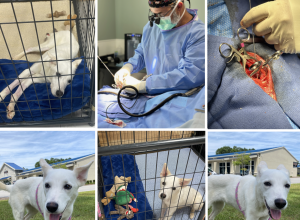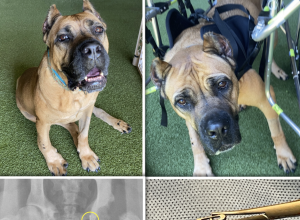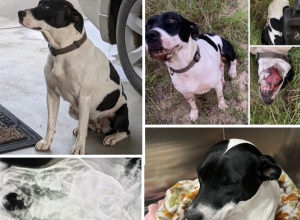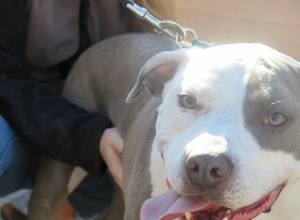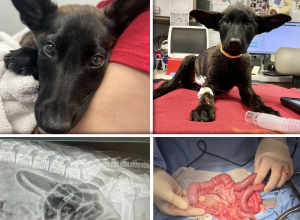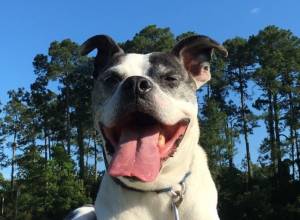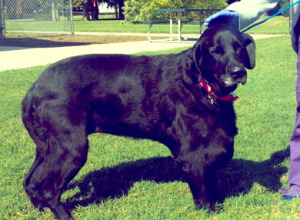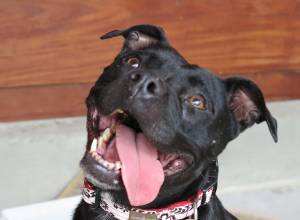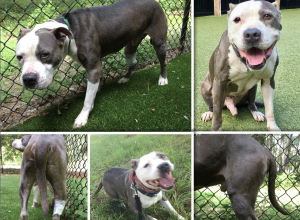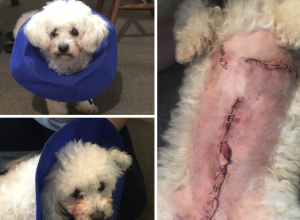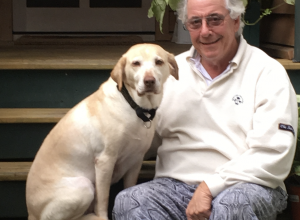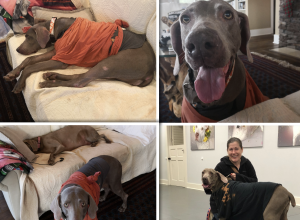Right in the middle of saving one dog from being put to sleep, I received another text from Beaufort County begging for help with a 5-week old, 5 pound Labradoodle puppy. The Owner brought tiny Otis Redding to the shelter and explained she was unwell and could not care for this young puppy. She said he was in excellent health and nothing was wrong with him.
Adorable does not begin to describe this beautiful puppy. Sadly, normal he is not. Animal Control immediately noticed he had a head tilt, and when picked up, he appeared to be swimming in place. When he was first put down to walk, he would fall forward over his head and then walk with a lean. Once he got his bearings, he would run across the room with wild abandon and bounce through the air.
I wish I had someone to call and ask if they would take this sweet puppy. Sadly, the only person or group I know of that would take on a puppy with these neurologic issues is Noah's Arks Rescue and ME. I had Beaufort County take sweet Otis Redding to CVRC in Charleston, SC, where he was admitted through the ER.
Everyone working with this adorable puppy was smitten from the get-go. Otis was worked up from top to bottom all through the weekend. On Monday, he was transferred to the Neurology Dept. where Dr. Klopp took over his care. After further discussion with Dr. Klopp, it was determined Otis would have to have an MRI to see what was causing his abnormalities.
Given that Otis is only five weeks old, he still has an open Fontanelle, a soft spot that usually closes as the puppy ages before 12 weeks old. It closes when the two boney plates come together to protect the brain. During this time, it is essential to protect the puppy, so the brain is not damaged. Certain breeds have genetic issues that cause their Fontenelle to not close. These dogs are always at risk for brain injuries.
Otis's MRI suggests previous trauma/fractures along the fontanelles with subsequent loss of brain tissue. It also highlighted a cystic area at the dorsal aspect of the 4th ventricle, which may represent an arachnoid cyst. Arachnoid cysts are cerebrospinal fluid-filled sacs. Either one of these anomalies could be causing Otis's symptoms. Given his age, we have to wait until he gets bigger before he can have any surgery.
Otis's primary clinical signs are vestibular/cerebellar. When Otis was observed in the ER, he was noted to have had an atypical seizure. He was started on a mild anti-seizure med until they could rule out him having seizures. We have not observed any seizure activity and plan to stop his medication after a couple of weeks.
Otis's Neurologist believes he was dropped on his head, which would explain the injury to his brain. Adorable Otis is getting better at balancing himself when his vestibular system is out of whack. As he gets older, that will improve. We have several dogs that are similar to Otis. They have learned to adapt, and their balance issues are not a problem. We always take precautions to ensure they are not in danger of falling in water or anything that could harm them.
Otis will have to be closely monitored to ensure he is not getting worse or developing seizures. Given his young age, he may improve without any surgical intervention. We will learn a lot over the next couple of months. One thing is for sure; he looks like an adorable little bear that is full of Life.
Sadly, cuteness does not pay the bills, or we would be rolling in money. We have some of the most adorable pups and are constantly begging to give them the medical care and rehab they need to live a full Life surrounded by people that adore their little quirks. Please, help us, help Otis by Donating.

